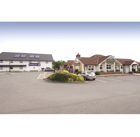The inside story of solar PV for Premier Inns

The application of solar PV has been a major part of the energy strategy of Whitbread Hotels & Restaurants. Cian Hatton discusses the energy efficiency and economic benefits.
The installation of solar photo-voltaic panels (solar PV) at 88 of our Premier Inn sites in the UK is part of our ongoing commitment to develop our energy management strategy in line with the growth of the business. Comprising over 12% of the Premier Inn estate, the volume of Premier Inn’s solar panels has a generating capacity of 1.44 MW, which is enough to power over 300 homes.
It’s not just about solar panels; in 2015/16 we have invested £2.78 million in energy-efficiency capital projects overall — with an anticipated energy payback of 3.2 years across the whole programme. The core focus of the programme has been LED lighting in hotel corridors and voltage optimisation. We are also trialling several innovative new technologies as well as existing technology that is new to Whitbread to help us develop a fully integrated strategy for capital investment in energy efficiency going forward.
In 2015/16 we invested £1 million of capital to install 41 solar PV sites bringing the total of solar PV sites to 88 overall. This will generate £140 000 of revenue benefits per year and, based on current emission factors, will see 361 t of carbon saved each year. The investment is key to us reaching our efficiency target of reducing carbon by 15% by 2020, relative to sales turnover.
The completion of the 88 solar PV sites is expected to result in a cost saving benefit of around £340 000 each year. This is a great result for us, and demonstrates our targeted, data-driven approach to economic efficiency; we have a team of specialists who work out how to spend money most efficiently to cut our carbon emission and invest in the business.
A key economic factor that influenced our business decision to implement solar PV when we did, was the Government’s policy on the feed-in tariff (FIT) scheme. The tariff, designed to encourage uptake of a range of renewable and low-carbon electricity generation technologies, came to an end on 14 January 2016, so to benefit from the scheme we were inclined to make the investment ahead of this deadline.
Under the scheme,FIT provided payments to owners of electricity-generating renewable-energy technologies. However, due to the generous initial rates, the uptake of solar panels was faster than perhaps had been anticipated and some cutbacks have subsequently been made.
Whilst most of our eligible sites now have solar PV systems installed, we will continue to invest in these technologies when appropriate as part of our wider commitment to carbon reduction.
Renewable energy will always be part of our energy-saving approach as we continue to minimise our carbon footprint, reduce energy usage, water consumption and waste production.
Even though the company’s environmental track record continues to evolve, has made some positive progress and has been recognised with a number of awards, we are seeing significant investment and a change of pace within out energy and environmental teams to ensure that we remain competitive, ambitious and at the forefront of hospitality sector environmental innovation.
Cian Hatton is head of energy and environment with Whitbread Hotels & Restaurants.







